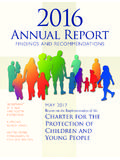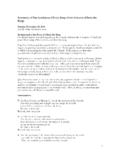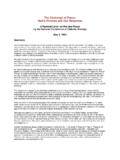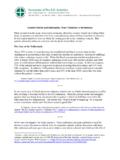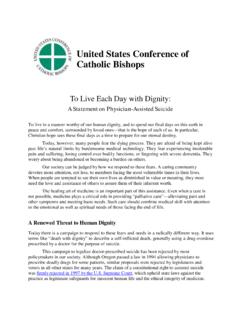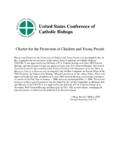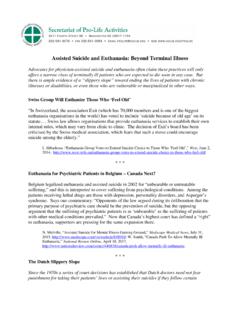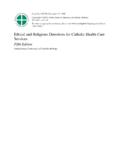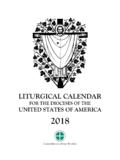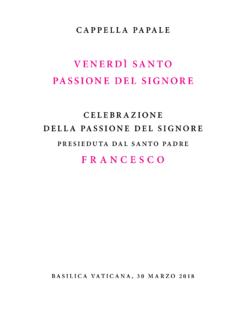Transcription of CATECHESIS AND THE WORD OF GOD
1 THE word of god : SOURCE AND POWER OF PREACHING Preaching the Mystery of Faith University of Notre Dame June 24-25, 2013 It is an honor and pleasure to be with you this morning, you who are so central to the Church mission of proclaiming the word of god to the world. The recent statement of the National Conference of Catholic Bishops, Preaching the Mystery of Faith is a strong reaffirmation of the ministry of the word, particularly in the context of the Sunday Eucharist. It follows upon a previous statement on preaching issued by the Bishops Committee on Priestly Life and Ministry thirty years ago, Fulfilled in Your Hearing, a text that has served the Church well over the past few years, as many of you who have used it in your homiletic courses can attest. But a lot has happened to the Church in the United States in the past thirty years and the time was ripe for the bishops to turn their attention once more to this central ministry of the Church.
2 As our program indicates, subsequent sessions in our conference will focus on some of the dimensions of the statement that reflect this new context: namely the relationship of preaching to the New Evangelization and 2 the necessary link between homiletic preaching and the Church s catechetical mission. The topic I have been asked to speak on today is to focus on the biblical foundations for the Church s preaching ministry and some of conclusions we can draw from this for what we might call a spirituality of preaching. I will do my best to address this topic but I look forward also to your responses and insights, my brother and sisters in the preaching ministry. A Consistent Theology of the Word One of the remarkable features of the post Vatican II church regarding our reflection on the word of god is the strong and consistent mode of reflection on what is the ultimate foundation for the church s mission to proclaim the word of god .
3 One can draw, in fact, a straight line from the Dogmatic Constitution on Divine Revelation dei verbum formulated near the very end of the Second Vatican Council in November 1965, through the formulation of the Catechism of the Catholic Church in 1992 in its reflection on the Creed, which in fact draws heavily on dei verbum and on to Pope Benedict s post-synodal exhortation of 2010, verbum Domini and finally to the Bishops statement, Preaching the Mystery of Faith promulgated at its November 2012 meeting. This latter text, which is the 3 rationale for our conference, draws on all of the above mentioned documents in reflecting on the Church s preaching ministry. There is a common pattern that runs through each of these documents. The formulation found in Vatican II s dei verbum is seminal. You may recall that this document underwent a complex and controversial process before it was finally approved by the Council The original schema proposed at the opening session of the Council was rejected as being too abstract, too scholastic, and too rigid in its formulation.
4 Then a peritus for the German bishops at the Council, Joseph Ratzinger said that the schema was cramped: and essentially a canonization of Roman school theology. Pope John XXIII sought a solution to the sharp divisions among the Council Fathers by appointing a commission to work on the text, a commission co-chaired by Cardinal Ottaviani and Cardinal Bea each of whom represented polar opposite viewpoints about the document! Ultimately the document, benefiting from the educational and formative process of the Council s intervening sessions, would be approved by a near unanimous vote. The fundamentals of each of the subsequent statements I have referred to are already found in the Council s dogmatic constitution: 1 See the discussion of the process in Ronald D. Witherup, Scripture dei verbum (Rediscovering Vatican II; New York: Paulist Press, 2006) pp.
5 1-31. 4 a) First and foremost the God revealed in the Bible is a God who self-communicates; a God who is not self-contained but one who wishes to reveal himself to the world. This is evident in the account of creation that begins the biblical saga in Genesis chapter 1. Through his all powerful word, God creates the universe in all of its dimensions and in all of its beauty. Above all, God creates the human being, male and female, as the summit of creation and establishes a relationship with humans. b) Secondly, the Bible portrays the human person, male and female, as made in the divine image therefore, as capable, indeed destined, to respond to God. Thus revelation is not an abstract notion about the transmission of truth but at its root is a relationship between God and the world he created. This relational nature of revelation is fundamental to the whole theology of the word developed in dei verbum and continuing to the present day.
6 C) Thirdly, the God who creates the universe and the human being does not stay aloof from his creation but is involved, although mysteriously, in human history. The long and tortured saga of Israel presented in subsequent biblical history reflects this conviction. God is present protecting Israel, admonishing it, forgiving it, carrying it forward often in spite of itself. Although the main focus of the Bible is on God s 5 unique people Israel, it is also clear that the God of Israel is also the God of the Nations and the entire history of all peoples and of the universe itself is God s own arena. d) Fourth, the culmination of human history and of the revealing word of god comes in the person of Jesus Christ, the Word made flesh and the definitive revealer of God s word to the world. Here dei verbum and followed by each of the subsequent documents I have cited turns to the prologue of John s Gospel, the most eloquent biblical expression of this conviction.
7 The Word who is with God from the beginning is the Word spoken by God and perfectly expressing God s being so that the Word is God, this is the Word that arcs down into the created world and becomes flesh. In the flesh of Jesus Christ, the community sees the glory of God. Other key texts cited in our documents that also express this conviction are found, for example, in the opening words of the Epistle to the Hebrews: In times past, God spoke in partial and various ways to our ancestors through the prophets; in these last days, he spoke to us through a son, whom he made heir of all things and through whom he created the universe, who is the refulgence of his glory, the very imprint of his being, and who sustains all things by his mighty word. (Hebrew 1:-3). Or the opening lines of the 6 letter to the Ephesians also cited by dei verbum : In all wisdom and insight, God has made know to us the mystery of his will in accord with his favor that he set forth in Christ, as a plan for the fullness of times, to sum up all things in Christ, in heaven and on earth.
8 (Eph 1:9-10). e) And, finally, the Word embodied and made flesh in Jesus Christ, a Word expressed in his teaching and compassionate healing, in his gathering of a community, in his giving of his life in the fullness of love, in his conquering of death and his return to communion with the Father for all time this full articulation of God s word of redeeming love for the world is now entrusted to the apostles and their successors. Fired by the Spirit of God sent upon the Church by the Risen and triumphant Christ, the apostolic church is commissioned to proclaim the word of god to the world and, in the spirit of that word, to form communities of life gathered in the name of Jesus and destined to be witnesses of God s redeeming love for the world. Here is the ultimate source and authority for the preaching ministry of the Church.
9 This is the sequence from the first impulse of creation through the incarnation and on to the apostolic mission of the church--that is first articulated in dei verbum , succinctly repeated in the Catechism, and beautifully expanded upon in Pope Benedict s eloquent verbum Domini which, taking its cue from the General Synod of 2008, reflects on the role of 7 Scripture in the life and ministry of the Church. And this is the same biblical and doctrinal basis for the bishops statement on Preaching the Mystery of Faith. The Beauty and Power of the Biblical Narrative We should not be content, however, to articulate the biblical foundation for the ministry of preaching in rather abstract or schematic terms. When we actually reflect on the word of god as presented by the Scriptures themselves, we are taken deep into the pulsating beauty and power of our biblical heritage and deep into the underlying meaning of our ministry as preachers of the word within the church.
10 With your patience I would like to look through this biblical lens at the church s mission to proclaim the word of god in the midst of our unusual times. The word of god few phrases resonate more powerfully within the biblical saga than that. The motif of God s word twists through the entire story of Israel like a powerful sinew. From the creating word of the opening chapters of Genesis to the healing word of the Lamb who was slain in the Book of Revelation, the Bible is convinced of the overwhelming and transformative power of God s word. 8 At the dawn of the universe, God s word hovers over the tohu-va-bohu, the formless and chaotic void, and transform it into light, order, beauty, warmth, the light of the sun by day, the glow of the stars and the moon by night, the fertile earth and the marvel of the human person male and female.
